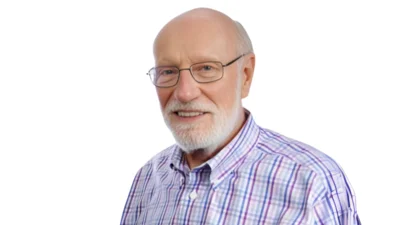With health care spending on an upward trajectory, Alex Brill, CEO of economic policy consulting firm Matrix Global Advisors, thinks that value within the sector also must increase.
The best way to boost both is by utilizing biosimilars, which are the less expensive copies of the highly complex biologic pharmaceuticals, Brill, who is also a research fellow at the American Enterprise Institute, said.
“In the coming decade, health care spending is projected to grow faster than the economy overall, and current reimbursement structures often encourage providers to increase the volume of care they provide instead of promoting value," Brill told American Pharmacy News. "Value-based strategies can promote efficiency in this industry and slow the rate of spending growth."
Biosimilars are just beginning to enter the U.S. market, but a robust biosimilars industry that yields maximum benefit for patients is far from certain, writes Brill in his new report, Payor Strategies to Promote Biosimilar Utilization, which was sponsored by the Pharmaceutical Care Management Association.
Because biosimilar utilization can be significantly facilitated by physicians, the full potential of biosimilars in the United States will be realized more quickly if doctors embrace their use, Brill said
One way that policymakers and payers could encourage physicians to use biosimilars, in addition to promoting physician education around biosimilars, is by rewarding them for doing so, he said.
In fact, private payers already use these types of payments to reward physicians’ generic drug prescribing. For example, Excellus BlueCross BlueShield in New York offered higher office-visit payments for physician groups that increased generic prescribing by at least 5 percent, an incentive that reportedly resulted in a 10 percent to 12 percent reduction in patients’ out-of-pocket expenses, according to the report.
Payers, seeking to improve the value of care through the use of appropriate incentives, Brill concludes, are well situated to facilitate the growth of biosimilars.
“Biosimilars offer the potential to reduce spending on costly specialty medicines by promoting competition among products in this drug class," Brill said. "Modest rewards to physicians for encouraging biosimilar utilization can speed adoption of biosimilars and help drive cost savings to the health care system overall."
Biologics, conversely, are among the most expensive drugs available, and represent a large and increasing share of U.S. drug spending, he said.
So while any robust cost savings from biosimilars has yet to be realized in the U.S., the opportunity does exist, Brill added.
“It is important that U.S. payers develop tools to ensure that biosimilars are well accepted, adequately prescribed and appropriately dispensed," Brill said. "Physician incentives for biosimilar utilization are one tool for helping ensure that the savings potential offered by biosimilars is realized."
The report is available online at: static1.1.sqspcdn.com.











 Alerts Sign-up
Alerts Sign-up